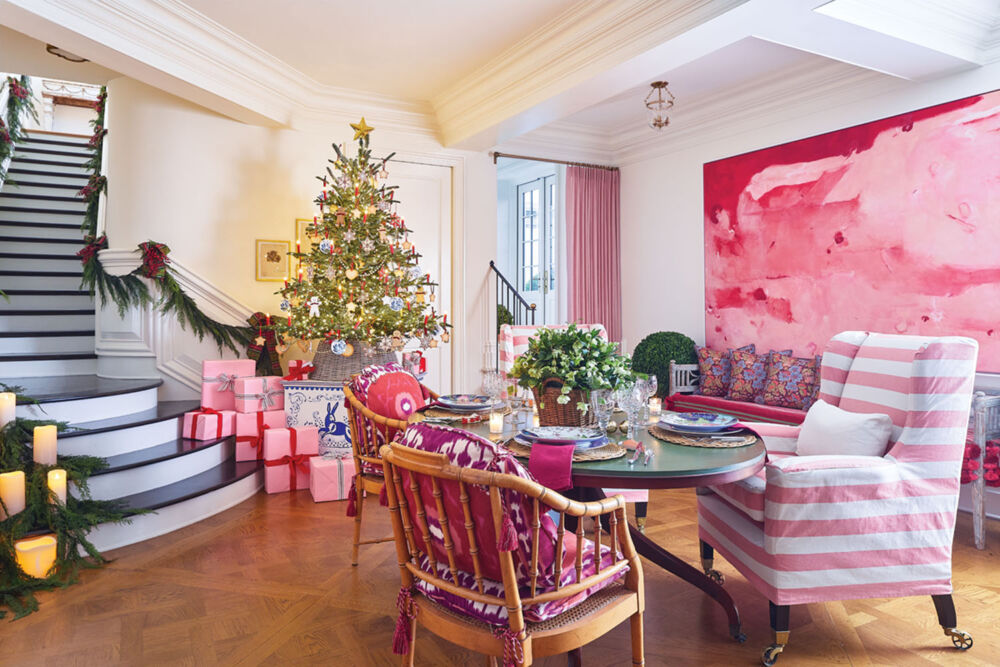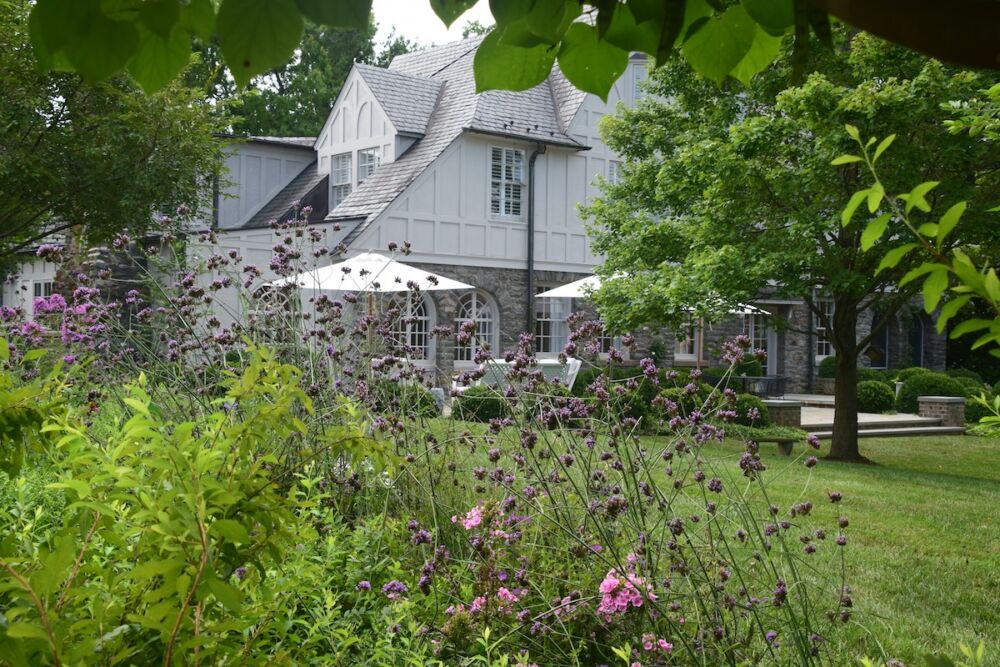[vc_row][vc_column][vc_column_text]
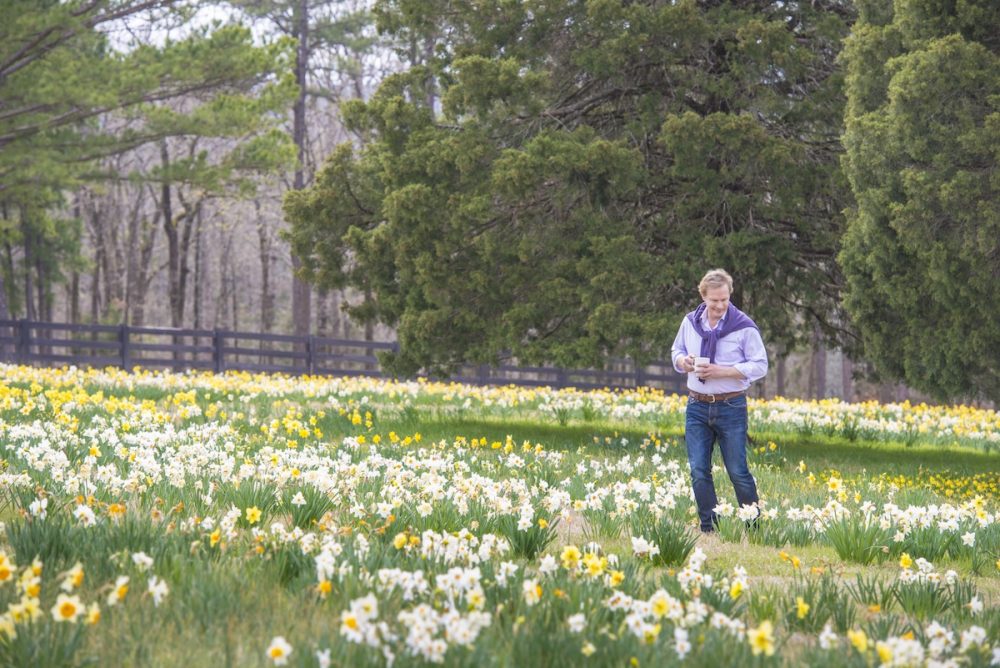
Daffodils are the harbingers of spring, so carefree and one of the first to pop up and brave the cold! P. Allen Smith shares beautiful bulb combinations to plant for a dazzling spring display. Photo by Mark Fonville
I know a lot of my fellow gardeners might be feeling like they’re finished for the year. Maybe the summer was especially hot and dry, or rabbits and deer took some of the fun out of gardening by eating more than their fair share of plants. Believe me, I can sympathize.
But before you roll up your hose and store your shovels for the season, I want you to think about treating your future gardening self to the gift of fresh spring flowers by planting some bulbs this fall. It’s an easy and relatively pain-free planting job that can be made even easier with the help of some classic spring bulb “recipes” and flower combinations.
Daffodils for Fall Planting
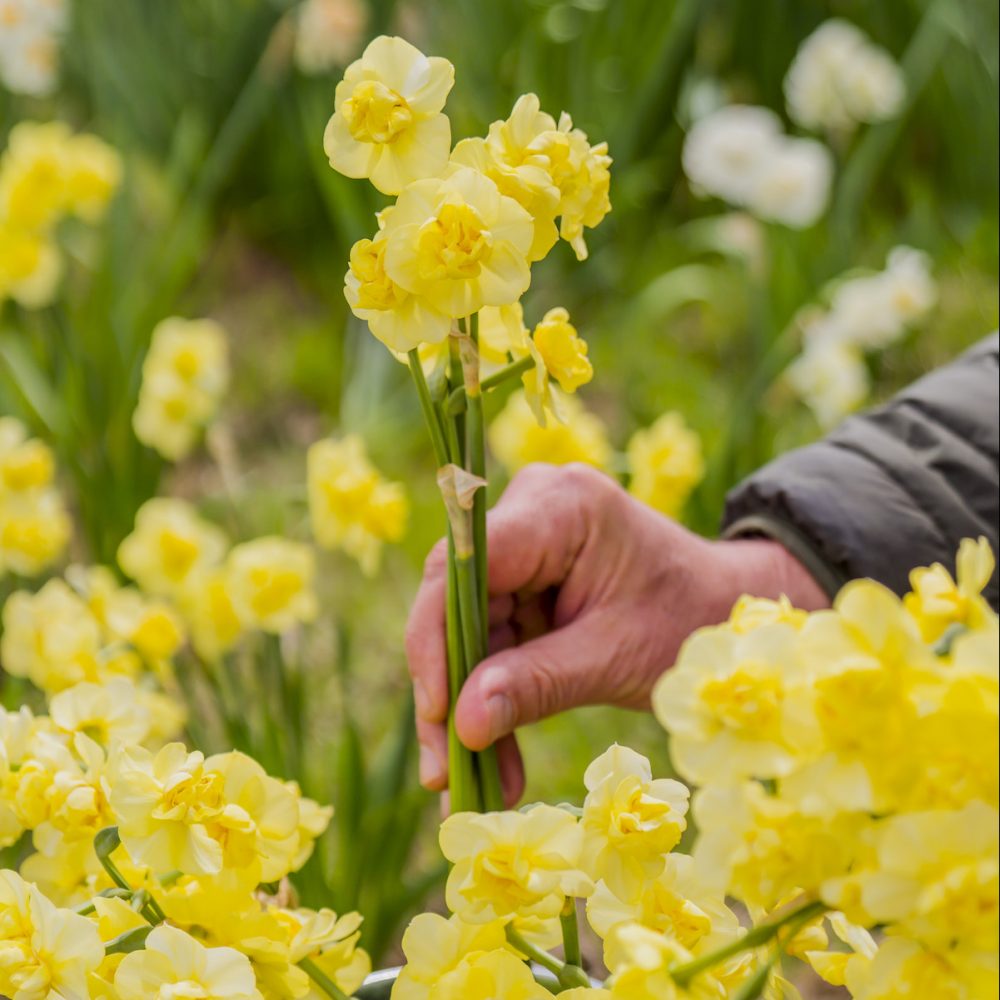
Once the daffodil bulbs are planted in the fall, they emerge each spring for many years with little care. ‘Yellow Cheerfulness’ is one of my double-bloom favorites! Photo by Hortus, Ltd.
Let’s start with daffodils—please! As you may know, I’m somewhat of a daffodil connoisseur—or fanatic, if you will—and I think there are many reasons to include this beauty in your spring garden. It’s one of the few bulbs that deer, rabbits, and voles won’t eat and are extremely easy to grow. In addition, they come in many different color combinations, heights, and bloom times, so you have endless planting options.
One of my favorites is the heirloom ‘Yellow Cheerfulness‘ double daffodil that has been around since the 1930s, and for good reason. It’s a midspring bloomer that reaches about 16 inches tall that has a rich, lush appearance. Combine ‘Yellow Cheerfulness’ with blue/purple of pansies and/or hyacinth bulbs for a classic color combination.
Alliums to Plant in Fall
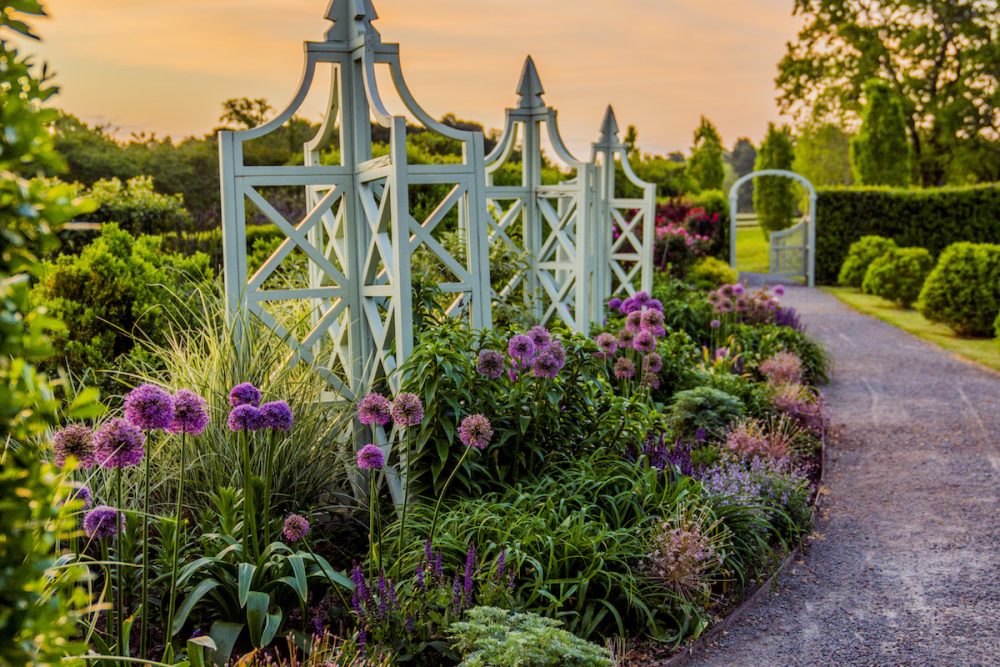
Alliums are an early summer flowering bulb that you plant in the fall. I like to plant ‘Gladiator’ allium for its whimsical, baseball-sized, blooms. Photo by Hortus, Ltd.
In addition to my love of daffodils, I am a big fan of large alliums, in part because they can’t help but make a big statement. They always stop traffic, especially when planted in large groups–a single plant or two won’t get the job done.
‘Gladiator’ Allium is a favorite, standing at 3 to 4 feet tall and blooming in mid to late spring. Softball sized lavender blue flowers persist for an incredibly long time on sturdy stems. If you let the plant dry completely in the garden, you can lift and store the dried flowers for future autumn decorating, using their naturally tan color in containers, or going wild and spray painting them gold or another complementary color.
Combine the defined circular shape of ‘Gladiator’ blossoms with the soft ruffled petals of blush pink ‘Angelique’ tulips for interesting contrast. For a tiered effect, complete the grouping with petite ‘Minnow’ daffodils, a 6-inch-tall beauty with creamy white petals and yellow cups. In addition, ‘Minnow’ is fragrant and has three to five flowers per bulb.
Tulips for Fall Planting
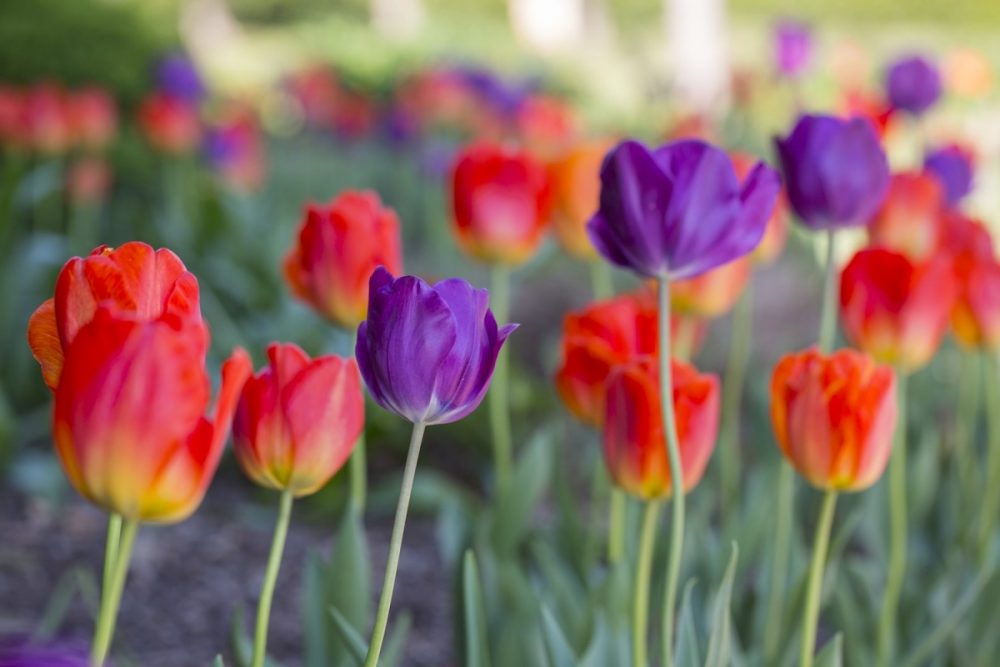
In autumn when most people are visiting pumpkin patches and making Halloween costumes, gardeners are thinking ahead to spring. My Contrasting Beauties tulip collection is sure to be a spring showstopper! Photo by Beth Hall
I also like the design effect of choosing a flower, like tulips, and planting different varieties together that are in the same color palette. The richness of similar tones playing off each other is a sophisticated but easy look to achieve. For example, my Garden Radiance Tulip Collection features two pink and white tulip varieties—’Hakuun’ and ‘Ollioules.’ ‘Hakuun’ is a pure white midspring bloomer, and ‘Ollioules’ is a rose-pink tulip edged in white that blooms at the same time. Together, they create a soft-pink blanket of color that is easy on the eye and definitely says that spring has arrived.
Or flex your artistic muscles by selecting contrasting colors like orange and purple—’Orange Queen’ and ‘Negrita,’ featured tulips in my Contrasting Beauties Tulip Collection.
Undertake fall bulb planting when the weather and soil have cooled and nighttime temps are regularly in the 40 to 50 degree Fahrenheit range. And don’t be afraid to plant in large groupings. This is a philosophy I take very much to heart at Moss Mountain—plant big or go home!
Think of this final gardening task as a gift to yourself that you’ll receive in spring—and give you something to look forward to as winter weather sets in.
Video: Bulbs for Fall Planting
[/vc_column_text][/vc_column][/vc_row][vc_row][vc_column][gem_youtube width=”770″ height=”433″ video_id=”gTPM6naSWsE”][/vc_column][/vc_row][vc_row][vc_column][vc_separator border_width=”2″][vc_column_text]By P. Allen Smith
About Allen
P. Allen Smith is one of America’s most recognized garden and design experts. His Moss Mountain Farm serves as a place of inspiration, education, and conservation. Book tours at pallensmith.com/tours.
Find and purchase the plant varieties Allen mentions in the article at PAllensFlowers.com.
More Spring Bulbs and Flowers
- How to Force Paperwhites
- The Best Places to See Daffodils this Spring
- Spring Flower Basket Arrangement
- Flower Garden Arrangement How-To
[/vc_column_text][/vc_column][/vc_row]



